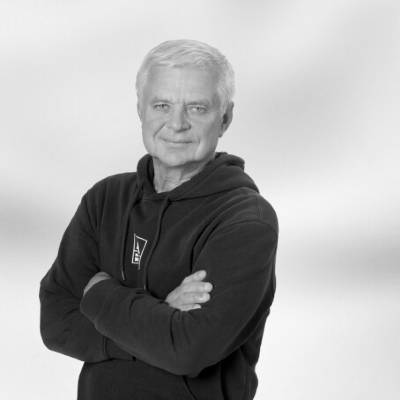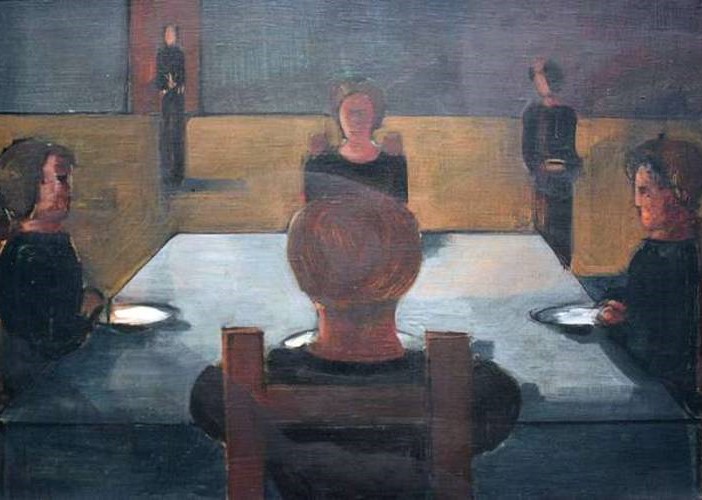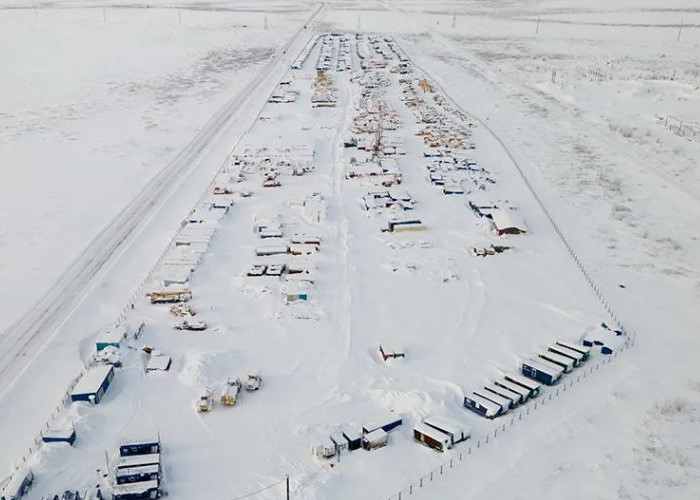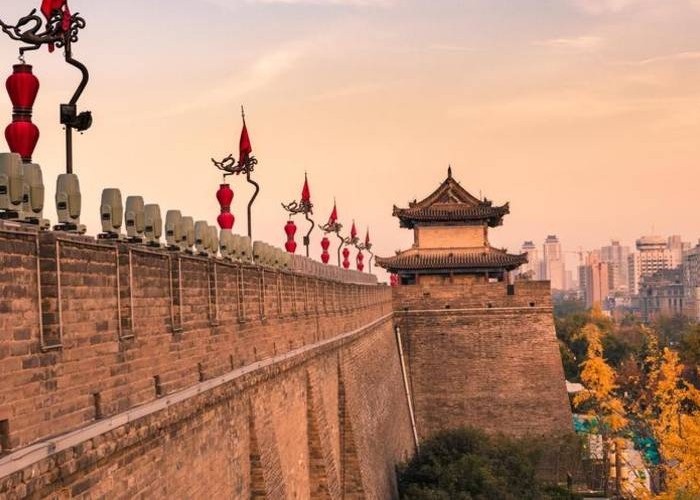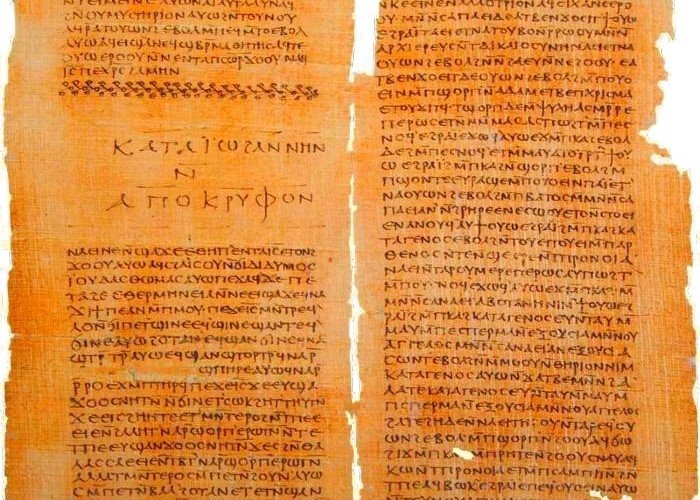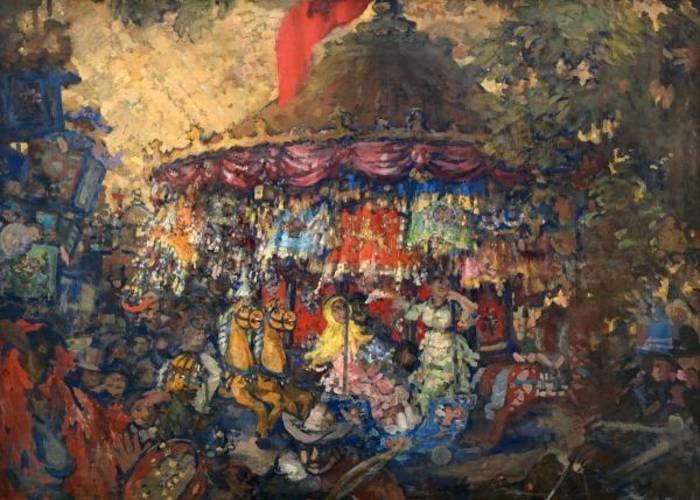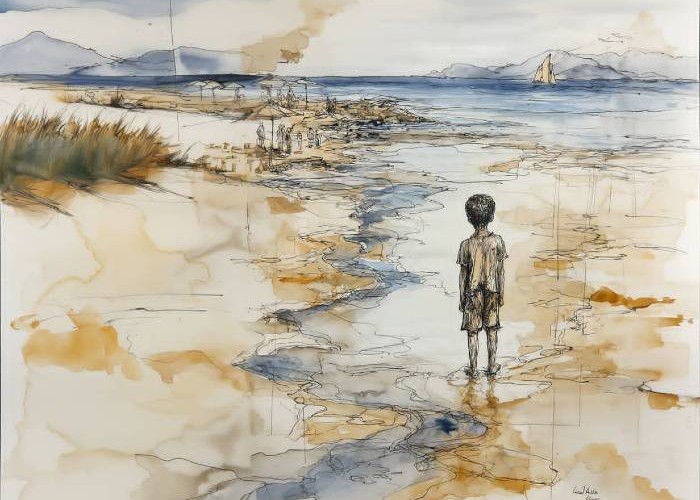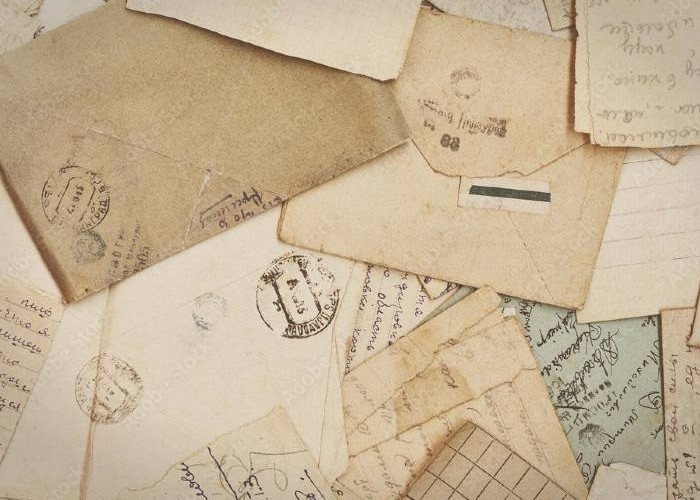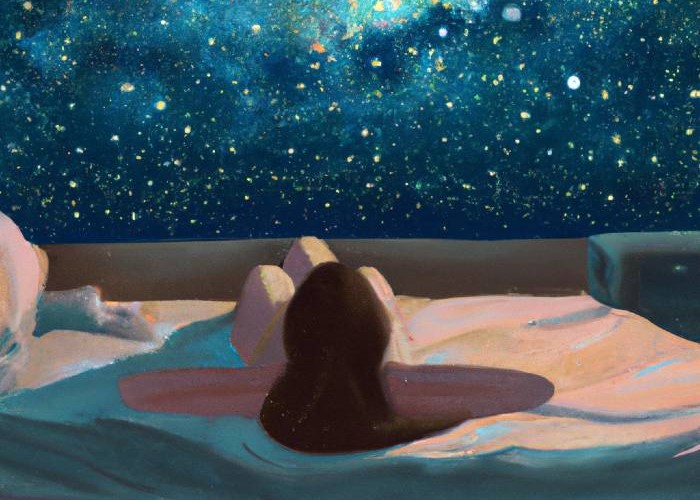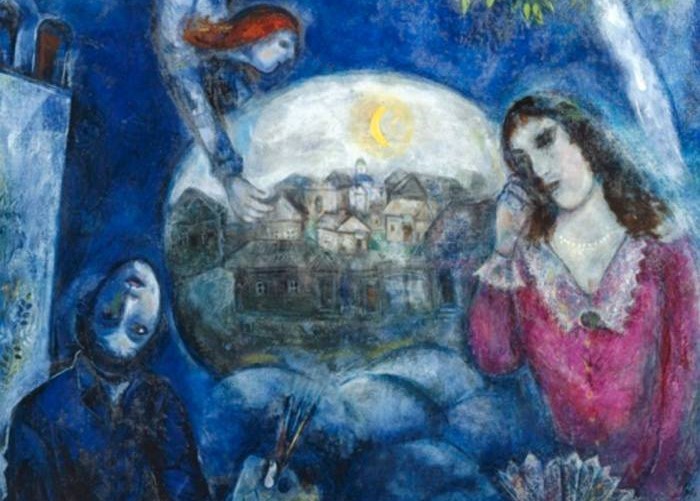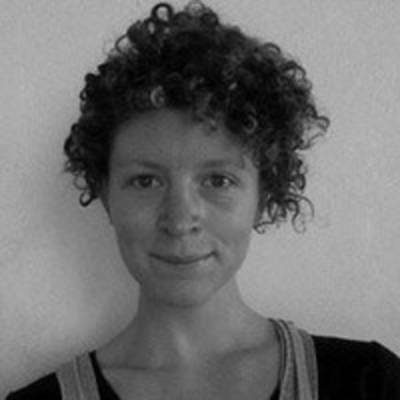EXCERPTS FROM THE NOVEL
1
How I pity the person writing these words, how I want to help him! He calls me Ea, pronounced as two syllables. Let him call me whatever he wants, say my name however he wants; I let him do whatever he pleases for the simple fact that he is trying to grasp me, wants to feel and write in my name. It’s impossible, I want to tell him, almost impossible. But he’s stubborn, I know that. He’s gone through all his thoughts and feelings, written about them, and now he’s decided to catch me. Why not let him try. My own role in this game is so pleasant, I’ve never known anything like it. Pleasant, unlike his agonies. I pity him, this man I settled in even before his birth. And in whom I now live, enveloping him in an invisible cloud.
He first felt me when he was lying in his crib, looking out of the window at the branches of an apple tree. Until then, I’d watched him without being seen in return, singing him to sleep and sending him dreams without him knowing anything about it. But suddenly this gaze, this smile, the first recognition—he’d understood that I would never leave him.
We lived like that, together, from that time on. If I were to try and describe it in ordinary, human terms, I suppose I’m something like the glass that he was looking through. Or no, it’s more like he enlisted me into his gaze, and I dissolved into it. With my help, he has always managed to correct life’s course, to listen to the rustle of time instead of simply being swept in whatever direction it takes him. As though he were on a boat but with his hand lowered into the water, testing its strength—and this minor intervention changed both the direction of the boat and the distant point on the shore where it would end up. Not much, but it did. The course that his life was meant to follow changed. And any efforts to turn back only sent him further from the original path. Where he would be now, what kind of life would surround him, if from the start he’d surrendered himself to the quiet, even movement of fate? If he’d simply watched over life, guarding it? Once when he was a child he was sitting by the bed of his dying grandfather, who said, “There now, I’ve finally made my peace. I should have done it sooner. Maybe then I would have managed to live as I should…”
Tears ran down his grey temples to the pillow, one after the other, lively and quick. His grandson looked at those tears, which ran not down his cheeks but straight out of the corner of his eyes and into his hair, and thought that life would always be just as unusual and unexpected as these tears.
Now he’s caught up with his grandfather; he already feels the discrepancy between fate and life. But is it really possible to live any other way? The only thing left was to fill in the past with memories; and memories, like old photographs, shut down any choice, freeze everything that has happened so that it is fixed, unambiguous. When even just a moment before the choice was made, nobody knew what it was going to be. And nobody knows how it’s all going to end.
He lived and felt in the interval between the first inkling of a plan and its execution without even comparing these extremes. The thing that always tortured him and caused him anxiety was the middle ground, invisible but always there. That’s where feelings swirled and flashed like lightning in a stormy sky. That’s where I was. Ea, as he calls me.
His thoughts move from the complex to the simple. There he sits at the table in his room and thinks. Why does he like flying through the infinite expanses of time and space so much? There’s nothing there but emptiness. He’s trying to get a good look at himself, to get strength and certainty from looking. He tries to think about life in one enormous thought, as though he could spread one endless cover over it all, gather it all together from the beginning right up to and beyond its end—then loses his footing and falls into a chasm. And suddenly he feels me beside him, and it’s like he chokes. And he names, names, names me to himself, and words immediately begin to seem inexact and approximate, they become simpler and simpler until they turn into a single phrase. I am myself and Ea, he says to himself. And falls silent, feeling me without words. And thinks, looking through me, as though trying to convince me to show myself. But how can I help him? Make myself into a soft cloud? I can’t, I just can’t.
Yesterday he said to me that all thoughts are just conventions, like words, that they’ve dissolved into the place where I live, and that now his only desire is to enter that world, too, or at least to touch it, to be able to say something about it. How, he doesn’t know; he only knows that he wants to. Poor man, I should give him some respite. How much distance do I need to put between us to make him forget me, at least for a while? Is it even possible?
2
On and on we went, only we weren’t singing Memory Eternal, I thought, suddenly remembering the start of Doctor Zhivago. The atmosphere of that book fit exactly with everything I could see around me. The words I’ve always used to try and describe it flashed through my mind: elemental, vertiginous, sweeping… The word I really wanted had hidden itself away somewhere, of course. As always happens when you’re searching for a very particular word, a completely meaningless one appeared instead: “strange”. Well, let it be strange. A strange novel, just like this life that I see before me now. One that I was always in fact rereading, opening at random in an effort to shake my feelings out of their habitual rut.
On and on we went, from the metro to Nemtsov Bridge, hundreds and thousands of people, so many faces. I wanted to look closely at these faces not turn away from them, to seek out similarities; I felt at home in this crowd of others like me. On and on we went in the joy of togetherness. But where will we get?
Later—after the march, when I was leaving and everybody else was dispersing too—I looked back at the living streams that flowed in every direction, like water from a hill into a ravine. Into the depths, into the metro, back to indifferent life.
I was still on the bridge when an old man stopped next to me. He, too, looked back at the endless procession of people, then turned his gaze to the Kremlin.
“What an image,” he said, not addressing anyone but seemingly wanting someone to hear. “Majestic and terrible. Two elemental forces, coming together in front of our eyes. No, not coming together. Colliding. The people and the state, good and evil, one side’s desire to speak its mind and a steadfast refusal to hear on the other.”
I agreed with him, was even thinking about the same thing as I looked at this Kremlin and the endless crowd that walked at either end of the bridge; yet inwardly I frowned at his words. It was one of those occasions when the truth is so banal that it becomes crass. The Volga flows into the Caspian Sea. That’s true, yes; but so what? I was about to answer something along the lines of, and where do you see the people? The people are sitting at home, this is just a fraction of them. If the people were to come, all of them, then they’d hear them, and how… I suppose I was tired of words. Of how feeble they are. I suppose I was annoyed. That’s probably what it was. That’s why I held back. But I recognised the old man. A line from that song by Vysotsky went through my mind, tune and all, “I recognised the old man from the tears on his cheeks…” Lots of quotations in my head today, I thought sadly. A sign of inner emptiness and tiredness. Anger at this emptiness made me feel that I was on the verge of doing something out of character—starting a conversation with this old man, for instance. Out of character because that’s not the kind of thing I do anymore. I don’t like talking to people when I’m out; I don’t know how. Whenever it does happen, I regret it afterwards.
No, I decided. I won’t start talking to him. I’m tired of all these words about the same thing.
I carried on walking, then for some reason looked back. The old man was following me. He was just walking, in fact, but I thought: he’s following me. Strange feelings began crowding into my inner emptiness. The same sort of thing happens when you stop thinking and instead just pick out invisible patterns in the air, as if trying to disappear, leaving the world only your sensations. The premonition that something was about to happen arose, not in but beside me. Yes, I was feeling strange, very strange. I was sick of trying to catch hold of my sensations, tired out, but still the chase continued.
I understood that I was now completely alone, without Ea. I wanted to go home. I wanted it desperately, as a child might, to the point of tears.
But everything carried on. I let the old man go ahead and set off after him. Why? I don’t know. As for what happened next…
Why did I fix the mounted policemen that were riding towards us down Vasilevsky Descent with such a hateful glare, why didn’t I step aside to let them pass? They stopped in front of me. I said something malicious; I don’t remember the exact words now. One of them rode off to a group of OMON guards. They were already leading me towards the prison van when I saw the old man again. He went up to the officer, said something, took an ID card out of his pocket and showed it to him, and they let me go, only checking my passport.
None of this interested me somehow. It was like it was all happening to someone else. But when the old man and I started to walk away together, it was like I had already known back there on the bridge that this is how it would all turn out.
“There was no point in doing that,” he said. “Best case scenario, you would have wasted time.”
“And worst case?”
“You would have wasted a lot of time.”
“Thank you for getting me out of there.”
“Don’t mention it.”
We were almost at the metro but I didn’t want to part ways with my companion just like that.
“Are you in a hurry?” I asked. “Do you want to get a coffee?”
Then we were sitting in a café.
“I recognized you immediately,” I said. “I even wanted to start a conversation, back there on the bridge, but I didn’t dare. You could say we know each other, though there’s no reason you’d remember me. We were introduced once, a long time ago. At the Ivanovs’ place.
My interlocutor squinted, looking at me closely.
“Don’t worry if you’ve forgotten,” I smiled. “We talked about the early 90s, about all those changes. Tell me, what stopped you then? You were part of the first legal parliamentary opposition, after all, and one of the leaders of the KGB: what stopped you from reforming it, dismantling it completely?”
The old man said nothing for a long time.
“This is all very strange.” His eyes moved around the surrounding space. “Our meeting, and your question. It’s like everything is approaching a finale. Time is getting more and more compressed, feels somehow unfamiliar. I suppose there’s nothing to do but submit. I don’t like leaving questions unanswered, though I don’t always know how to answer them. Like now. I’ve been asking myself the same thing.”
I began to feel sorry for him. And for myself, too. We were tired of trying to understand all of that. You could see how tired he was just by looking at him. He looked completely hollowed out—a husk of a man. He’s probably completely alone, I thought, that’s why he agreed to stay and talk. I recalled how he had talked to himself back there, on the bridge. Only lonely people behave like that, occasionally speaking their thoughts aloud without even noticing anymore that they’re doing it.
“You’re not a journalist, are you?” he asked. “I mean… I’m not going to read my words in some publication or other tomorrow, am I?”
“No, I’m not a journalist. But you don’t have to say anything. I’m sorry, I didn’t mean to intrude.”
“You don’t have to apologize. Maybe I’m the one who should apologize, given that this is a question that even comes up. Still, who are you?”
“Nobody. A writer.”
“That’s not nobody! In that case, it’s even more important that I answer. I need to call myself to account, so to speak.”
He was silent again for a long while. I didn’t interrupt his silence.
“At the time, we thought we’d won, and that would be that. We thought that everyone understood everything as we did. That was our biggest mistake. Have you ever heard of structural resistance? That’s what we failed to take into account. We needed to overcome that resistance, but… we didn’t. We were too passive. We thought that evil would melt away on its own. But it needed to be pulled out by the roots. Not that we didn’t make some attempts. We drafted proposals, we petitioned the president, there were plenty of clear-headed and smart people among us. But he said: what am I going to do with all those tens of thousands of officers? It’s an organized cadre, after all. I can’t just make enemies of them. He thought they would be grateful to him for not touching them. That they would become his allies. But they didn’t.” The old man smiled wryly and continued. “One of my friends from training was among those who wanted to stage the coup in 1991. As you know, it didn’t work… Afterwards, he came to see me. Says: you’re going to execute me, I understand that; just don’t kill my wife and my child, he’s only 18 months old. I was completely flabbergasted. Of course, he was wound up, nervous. But his words say a lot about what they had in store for us. By the way, on a similar theme… Do you know that people were going out on protests against Stalin as early as 1927? What happened to those people a year or two later? We’re heading in the same direction. They’re the only ones left, the masters of life. And we go to rallies. And soon they won’t even let us do that.”
I knew all of that myself. The Volga flows into the Caspian Sea. I never would have thought that this phrase might become a synonym for hopelessness.
“I’m sorry,” I said. “I know how hard it is for you.”
“I can see it’s no easier for you,” he smiled wryly. “I wouldn’t have started talking to you but there’s something strange about all this. You couldn’t make it up. So I gave in.”
“There’s no changing anything now,” I said. “Definitely not now. Not until the evil melts away on its own.”
“On its own? As we thought it would then? Not likely. At least then it had run out of strength, whereas these new ones are building up their strength in order to prevent precisely that. Once I heard someone say what a pity it was that during the Flood of Noah so many good people had to die because of all the bad people. Not just people: nature, animals, birds. You could say the same of our twentieth century. It’s always everyone else who suffers because of these immoral monsters. But it’s so childish to think like that… When all that information came flooding out—all the archives and secret reports—I almost lost my mind. There’s a reason I mentioned the Flood. It was all I could think about at the time. Wash the damned lot of it clean! But evil on its own is not enough for a flood. It’s when everyone accepts evil, that’s what tips the balance. One person has a conscience, but what about the vast majority? And with whom does this majority feel more affinity, that individual person or nature in all its indifference?” He was silent for a while, then sighed. “I mean, why are there so few people at these protests? I’m not saying there weren’t lots of people there today, of course there were. But where are the rest? Where is the critical mass that would prove we don’t accept this? Do you know what I mean?”
“I do. I didn’t experience the full flood of information. But I saw enough to make me refuse to accept things, as you put it. There was one particular example, a simple one. I grew up in a village. An elderly man came from town for a holiday. Everybody knew that he had been an executioner under Stalin, his whole life. I thought I would go crazy when I realized that people actually respected him. More than they did any of my neighbors—teachers, carpenters, herdsmen, ironmongers, and builders, all perfectly decent people. Not only that, it was a kind of special respect, breathless: respect mixed with admiration and fear. He was elevated by some unknown and terrible status that made everyone feel they were somehow beneath him. It doesn’t compare with the blow you experienced but something broke in me then, in my relations with other people.”
We were silent. Then he said, “So, you understand. But if we come back to the present, if we talk about what there is to hope for… You should reread Tolstoy, by the way, the epilogue to War and Peace, the second part. The bit about cosmic shifts in people’s minds. I didn’t find any answers there, it’s true, but, if it doesn’t exactly fill one with optimism, his reasoning is somehow… It dampens your own sense of guilt, at least. I’m talking about myself, of course. You’re not guilty of anything.”
“What are you guilty of? As for the cosmos… It’s true, you get the sense that’s where everything is decided. As though two forces had lined up to face each other, kicking up the clouds, and it’s no longer our business but is decided somewhere up there… High above us.”
“Maybe. Though what do they care about us? You can look at every problem from two angles, you know. You can hope for something, or you can give up. The cup is half empty or half full, depending on how you look at it. I’m probably more of a pessimist, at the end of the day. It’s not just that the cup looks different, if you know what I mean. Pessimists like me think, whereas those others, they act. That’s their strength. That and their numbers. You can’t even imagine how many of them there are. More than us.”
My heart began to beat faster. That was exactly what I had just been thinking about. I should have asked him about it. Who better to ask than him?
“Do you know what I find hardest in every conversation?” I almost shouted. “All these formalities by way of apologies, the preliminary conventions. I’m apologizing to you now and I want you to accept the sincerity of my apology, but it’s only so that I can avoid the main thing, the thing I don’t dare to bring up but which only you can answer.”
He smiled, “I see now that you are really a writer. We’re sitting in a café and having a discussion. You never know what’s going to come up when you talk to an intelligent person, don’t you think?”
“Dostoevsky sounds strange nowadays, of course. Everything has its time and place. Like Tolstoy, incidentally. When I see his descendants on TV, I think, maybe Tolstoy never actually existed. Let me ask you about this one thing then. I see that this conversation about causes and consequences is not very pleasant for you or me. So, let’s not talk about it. But since we’ve met, I’m going to ask you about one thing, without any preliminaries. May I?”
“What are you so upset about? I’d actually like you to ask. I haven’t talked to anyone for so long. Ask away.”
“I wrote a book. The hero, a young man, is recruited by a KGB officer. They’re good at that. When it seems that there’s no longer any way out of it, when no arguments work anymore, this young man, in despair, at crisis point—this all takes place in the army, by the way, where this officer has come to see him for yet another conversation, and they’re talking in the woods, in a clearing where my hero is chopping wood—he cuts off his fingers with an axe. The officer runs away, and there are no more meetings. That’s it! My hero is free.”
I stopped talking, like I was stuck.
“So, what’s your question?” asked the old man. “You said that all so quickly, but I understood everything. That’s the terrible price of freedom. They understood that he wouldn’t be suitable. Is that what you wanted to ask, or rather, clarify? Sorry, that’s a, what’s it called…”
“A tautology,” I automatically prompted. “No, that’s not it. People read my book now. And what do you think? At least one in every two readers, maybe more, looks away. It’s like they’re turning away, they don’t want to know anything about it. That’s my question. Why?”
“I’ve already answered that, you just didn’t notice. When I said that there are a lot of them. You can’t even imagine how many of them there are. Not only officers who recruited people, but also those they managed to bend to their will. They don’t like to read such things. It’s not pleasant. But it doesn’t mean they’re bad people. Not at all. Who knows what their situation was? They didn’t dare resist. You can’t know… Still, not all your readers are like that, wouldn’t you agree? Not everyone likes that scene—but does looking away necessarily mean that they were recruited? Maybe they just don’t like the book. Could that be it?”
“It could be, of course,” I willingly agreed. “Not everyone reads like that, of course. Although… the majority, as you say. But I can’t get that thought out of my head. I’ve become convinced of it, for some reason. I never would have thought I’d become a litmus test.”
“I’d like to read your book. It’s a shame we didn’t meet earlier, I would have been glad to read a draft. You could even have put my name in the publisher’s imprint—such-and-such acted as consultant.”
He’s a tough one after all, I thought. He thinks quickly, and he’s not surprised by anything. He’s aware of the irony.
Suddenly I sagged. Like a deflated balloon. My conversation partner looked at me appraisingly. “You probably want to stop talking now. Be on your own. Yes? Just don’t go starting any more conversations with guardians of the peace. It’s not worth it.”
“I thought you were weak, Vadim Viktorovich,” I said, smiling. “But no.”
He waved his hand. “What does that matter. It’s only habit. Everything is in the past.”
We took our leave without saying anything else, just pressing each other’s hand. When I looked back on the street outside, I saw his tall, bent back. What was he thinking now? I had the feeling he was thinking about nothing at all, like me. I just wanted to walk and look straight ahead. No thoughts, no memories, no inner turmoil. A husk of a man.
I knew that Ea was not nearby. For that reason, it seemed there was nothing around me. This meeting hadn’t happened either, that’s how empty everything suddenly became. Apart from what we had said, I couldn’t remember any details—not how we had looked for a café, not the café itself, not the streets we had walked along. None of the street names or landmarks that used to keep me company, like the music that continues to play in your head after a concert at the conservatory.
How I’ve fallen out of love with the Moscow metro! I’ve forgotten the thrilling smell that gave me such joy when I was young; I can’t even bring it to mind, which is probably why I now see the escalators, vestibules and trains simply as a means of transport, a way to get home, looking down at my feet all the while. Not looking at the people around me, at their apathetic faces. Looking away, just like my readers.
I’ve noticed something strange about myself recently. I suppose that, in my search for Ea, I’ve started trying to lure her into my thoughts, to make them childish on purpose. We were always together when I was a child, and now I’ve started to think like a child to entice her. A child in adult’s clothing. It’s like I’m watching a cartoon or flicking through a children’s book and see the Middle Ages, the twentieth century, the time of Christ, thinking as I jump through the centuries about any other time but my own. Everywhere feels just as cold and strange as this metro. There would have been no shortage of KGB officers even when we were all living in caves: every other person, no matter what their age, would have been prepared to be an executioner. People are not inherently inclined to reject evil. Not a one of them could care less. All that had to be built, after all! We don’t even know our neighbours. But if we’re alone in this universe, why are we like this? If only we could put a little, even just a little more goodness into the world; if only we could shift the balance just slightly. But why do I consider myself good? Or even just normal? Am I? Probably. I don’t want to be an executioner, don’t wish anyone ill. I want justice, rights and freedom. All that stuff. Is wanting these things enough to make me a normal person?
Suddenly a completely improbable thought occurred to me. What if Ea had sent me this old man to talk to? I talked to him as I might talk to myself. These thoughts have been constantly on my mind lately, despite my best efforts to get rid of them. Now, trying to pass the dead time on my journey home, I began thinking about what else I would have said to him if my weariness hadn’t turned into silence.
I might have told him about how when I sent my manuscript round the literary journals, the editors said to me, we don’t publish pieces with a writer as the main character. That’s strange, I thought. What about The Life of Arsenev, The Gift, Martin Eden: would you have turned those down as well? How do you know what people should write about? There’s nothing more crass and self-delusional than inventing rules for yourself and allowing them to limit what you do.
About how I wrote to a former friend of mine, the descendant of a famous writer: you don’t have a noose around your neck, so why are you kissing the hand of this villain?
About how I listened to the mocking rant of yet another former acquaintance (I can’t bring myself to say friend). Now he’s the head of a TV channel and beamed while offering me a job, saying “You know Chaadaev, don’t you? Didn’t Chaadaev say that our mission is to show the world how not to live? Well, that’s exactly what we’re doing, and we’re making the bastards sick we’re doing it so well! That’s our mission. Those lies that you hate so much are necessary, they bring people together.” I looked at him, frozen, and understood that he thought he was smart, very smart, and that I was an idiot. The world has turned upside down.
Why did I want to tell him about all these incidents? They’re all basically about the same thing, I thought with a mirthless grin. About lies. Truth and lies. Truth that nobody needs, which doesn’t change a thing.
After everything that had happened in the twentieth century, I couldn’t forgive the world for letting this evil return, which now sought out its likeness all around me.
Still, who am I to put everything in this world to rights? Maybe I’m superfluous, too. But if I died, even this droplet would shift the balance. Let the universe decide about the flood.
I felt like I was flying headlong into madness on this metro train. Trying to get back to childish thoughts, I recalled the children’s book where Mr Know-Nothing says: “why write the truth? It exists anyway.” You don’t need just to write the truth, I protested, you need to think it, too, setting life to rights even if just in your mind. From the sidelines, at a distance.
Will Ea fly there with me?
3
There is nothing more powerful than your desires. The harder they are to fulfil, the more powerful they are, because they don’t have firm limits or a clear shape. For a long time, I’ve lived with the desire to return to the place I was born, to live out the rest of my life there. It’s impossible for many reasons, the main one being that the village where I grew up no longer exists, just as the surrounding villages no longer exist; the whole place is a nuclear desert now, the Chernobyl wasteland. But I can’t imagine another place to end my journey. What comes after life? I don’t know. If it does continue in some form, shouldn’t we leave some kind of testimony about ourselves, we who lived here? If not, isn’t it all the more important that we do? For some reason, I feel that returning to the place where I first emerged into the world would be that testimony.
The desire to return began to completely overpower me, overwhelming what little strength I had left for life here.
I thought about rhymes, about two alternating rhymes. Two pairs of similar phenomena tortured me, as though time were writing a stanza of poetry. I’ll try to paraphrase it now in four paragraphs of ordinary words.
A person should not get used to the history of humankind. How can one get used to the twentieth century, which happened not in Biblical times, not in the Middle Ages, but just now, barely out of arm’s reach? How is it possible to live after the destruction of man by man for the sake of some specious rules, put in place by the murderers themselves? How can one live in the place where these rules emerged, rules that showed the whole world how not to live?
I was born and lived happily until I learned about all of this in late adolescence. The discovery of evil stunned me. It seemed so enormous that I felt sure nobody could do anything but reject it, leave it to shrivel and die like a piece of seaweed tossed onto the shore by a storm.
But it lives on, picked up by those same people like that same piece of seaweed and thrown back into the same life-giving water.
How am I supposed to respond to all that? By renouncing it all. By returning to the place where I was once happy, to that paradisiacal garden that became a desert.
I said all this to Ea, and for the first time I had the feeling that she didn’t understand. Who else is going to understand me? Who will understand that I am not a naïve, injured child but a normal person?
As it turns out, our enemies understand us better than we do ourselves.
It feels strange to call these people enemies: they live just next door. They’re exactly like me, no different. To look at, I mean, of course; only to look at. We’re different on the inside.
There were three or four of them, maybe even five—a mass like that is hard to count. I opened the door to a local police officer, and they poured into the apartment behind him, filled it like dirt. They explained that they were working on the war with extremism, that they’d come to talk about my arrest at the protest. There was no search, nothing like that; they just looked around, picked up various things, put them back on the shelf. I stayed quiet, watching it all. Let them talk first, since they’ve come to me. But they didn’t say anything either, trying to scare me with their ominous silence. Finally, the guy in charge sighed:
“I’m tired of you.”
What about me? Didn’t they think I was tired? Just one look at people like that makes me lose the will to live, just the thought that they exist. Those descendants of Cain, all the former overseers, gendarmes, Chekists and these warriors against extremism of today, incompetent and incapable and therefore full of envy and hate. The only thing they know how to do is stop people living their lives. A friend of mine had a son who joined the OMON police. He got sick of it, gave up, became a builder. But he soon went back, took up his club once again. Like Cain.
I’m giving up my life to them! These words suddenly rang out distinctly inside me. Yes, giving it up. A picture came to my mind: a sacrificial fire, two people, one standing with a club in his hand, the other lying dead. Cain and Abel. The only thing I was worried about was Ea, how she would rise up into the sky in a plume of smoke as she took her leave of me.
I looked out of the window, as though looking for something like that smoke beyond it—a bit of haze, or a cloud, or just the air moving upwards. I smiled ruefully: just like Lermontov before he left for the Caucasus, I realized. Clouds up above, eternal wanderers.
“Smile away,” the guy in charge snorted. “He who laughs last, laughs longest. Here, have a look at this.”
He put a package of white powder on the shelf.
“I’ll take it away this time,” he said. “But next time it will be yours, and we’ll find it. You got that?”
I didn’t say anything.
“Got that? Yes or no?”
Evidently, they needed to get at least something from me, if only my understanding. I didn’t have the strength even to say “yes”. They left.
How desperately I wanted to find myself somewhere far away from here, getting off a bus; I imagined it a thousand times. I walked around my apartment for a while, couldn’t settle anywhere: there was no place for me, not on the sofa, not in the armchair, not on the chair by the table. I stopped in the middle of the room and stared at the wall where the reproduction of “Hunters in the Snow” hung. Finally, I caught my Ea. The endless air above the pond in this picture always drew her in, she loved to hide in it.
“That’s it then,” I said to Ea. “That’s it. If I imagine something a thousand times, it has to happen once.”
The bird in the picture seemed to tremble at my words, changing the direction of its wings, preparing itself to plunge downward.
4
No, it’s not happiness that we experience when our desires are fulfilled, not happiness. That’s just what accepted wisdom tells us to think. Won’t you swap happiness for surprise and agree with me? For surprise is exactly what it is, that first burst of new feelings and sensations; only in our haste we fail to notice it. More fool us. I’ve noticed it, though, have even spent long hours basking in it, endlessly, distancing myself from the expectation of happiness with a force of will.
I was going home, I think. If not home, then definitely back from somewhere on a bus at night. And I felt surprised, endless surprised at the sameness of my condition as I looked at the curtain on the window, which seemed to embody some temporal boundary. This boundary between the past and the future was always inside me; now I’d become consciously aware of it, thanks not to words but a visual image. A curtain of surprise at everything happening just as I’d dreamed.
But I’m not starting in the right place. I got to talking about my surprise, which was so long-awaited and struck me so clearly; but everything else that ended up happening that night was much more interesting. The rest of my account will be just as muddled. But this muddle says a lot about my state of mind. I was almost out of my mind, there’s no other way to describe it: I was like a sleepwalker, not a person, and completely aware of it. I even remember thinking that it was precisely in that kind of state that people make the most important decisions—when they’re not really in control of their emotions. It’s strange: your feelings are out of control, but at the same time you hear a voice inside you so distinctly that there’s nothing you can do but follow it.
For this journey, I had chosen not to take a train or a flight so as not to leave tracks in any databases—just in case they decided to come looking for me. I prepared ahead. A few evenings in a row, I went down to Tushinskaia metro station. That’s where the stop for the night buses to Belarus is, the ones that take passengers looking for the very cheapest way to travel. Many of them didn’t even sell tickets, you just paid the driver direct. They didn’t check documents either, which was exactly what I was looking for. I watched this process, tried to learn the rhythm of it, thinking that in a few days’ time I would take part in it myself.
What else was I thinking? Strange thoughts flitted through my mind. I thought about the one word that would explain my life but which I couldn’t quite land on. Departure, flight, disappearance? No. The word didn’t exist, but it encompassed these people, the buses, the evening air, and all the life I had lived until that time. Estrangement? This literary term seemed like the only one that might explain everything that had happened. I was creating strangeness, weaving it out of the world around me. That was the overriding quality of it all: the strangeness of my evening walks to the metro station, the strangeness of observing the passengers getting onto the bus from a distance, my feeling that I was a part of all this. Life continues only thanks to its strangeness, I thought, strangeness with an admixture of uncertainty about the future. This is a whole concept, of course, which can be explained in words, just as I am trying to do now; but at the time I called it simply a word. In the beginning was the word? Was life, this word, the very word I couldn’t find? It amused me to think about that, standing under a tree in the shadow. Tangling the essential thing in a play on words, as a child might. I haven’t changed since childhood. But would it really be possible for me to change, if Ea has not? She was with me there, at Tushkinskaia station, I felt her fear for me. Thanks to that, I didn’t feel lonely.
Oh, those evening excursions! I enjoyed them so much that I even started to worry that I wouldn’t make up my mind to leave, wouldn’t finally do it. I’d go down there, have a think, watch for a bit, and that would be it, this semblance of action would wear me out. The driver of one of the buses helped to push me into a decision. He came up to me on one of these evenings and asked,
“I’ve noticed you hanging around. Are you with the police, or what? Or are you looking for someone?”
I got confused, wanted to laugh it off (“I’m looking for myself”) but answered only, “I’m just figuring out what’s what. I want to go and see my relatives in Belarus.”
“Well come on them. We get all the way to Gomel in a night, you can sleep on the way.”
“I need to pack.”
“If you’re not ready to leave today, then come back the day after tomorrow. Same time.”
That’s it, I thought. I needed to be nudged before I’d get into the water. The day after tomorrow it is.
Now I’m on the bus riding along the night road to the place where I haven’t been for so long. Riding home. Is Ea with me? I looked at the curtain: that’s certainly here, I only need to reach out my hand. Though if I were to reach out your hand, I’d touch only swinging material. But I’m no materialist, I smirked to myself. Ea is the reason for that.
I’m jumping all over the place in my account of this trip – how I came up with it, how it happened! I’m mixing up the fabula with the siuzhet. That’s just how everything in life is, though: mixed up, at least in our perception of it. That’s how it seems to me.
It was a different bus. The one I’d been watching before, the one whose driver had approached me, wasn’t there when I got to the stop with my bag. Another one stood not far off. Probably much the same. I can’t go home now, I decided. What’s the difference? The route is the same, I’ve made the decision now. There were no passengers apart from me. Two drivers and no-one else. Even when the bus remained standing at the stop for a long time and the drivers kept exchanging mysterious glances, giving each other some kind of signals, it seemed to me that we were already on our way.
Suddenly I felt and understood clearly that this was exactly how time passes—everything happens not in sequence but simultaneously. Time doesn’t have a siuzhet, that’s the whole point. Only a fabula. All the details merged into one. I was thinking back to everything that had happened before that moment, several days ago, two days ago, an hour ago, a minute ago—yet had the feeling that everything that had happened did not extend through time at all. Everything was simultaneous. That’s why I’m jumping from one detail to another. All of them are in same place in my life, they’re all inside me now. Why didn’t I feel this earlier, why had I lived in the ordinary way, like everyone else, lived as one is expected to? This trip has probably just excited me, I reassured myself. Unusual decisions prompt feelings that are just as unusual. That’s normal. That’s completely normal.
I settled further into my seat, hoping to disappear, to dissolve into the unusual sensation. New feelings are pleasant! The simultaneity continued. I saw—not remembered but saw—myself packing the bag that lay beside me on the seat, thinking about what else to put into it, taking down from the shelf the three-kilogram piece of mammoth tusk that I brought back from the North at some point, from an expedition. A sudden thought goes through my mind: I’ll give it to Aleksei. Is he still making all those art pieces? I remembered that from somewhere or other, remembered that Aleksei lives in Gomel, that he still has a house in our evacuated village; perhaps I’ll bump into him? The bag becomes noticeably heavier, I shove some more clothes into it, take my passport out of the small box I keep it in along with all my money and at the same time see myself exchanging roubles for euros at that place by the metro that’s right next to the bus stop I’m even sorry that these details are so completely banal. I look up into the sky, invisible in the light of the streetlamps, and want Ea to look up, too, to say goodbye. I have no doubt that she can; we’re together, after all.
Gradually, however, my sense of the simultaneity of all that had and was happening began to dissipate. It’s not just the habit of living and feeling as one is expected to that is to blame. Flying along, fighting itself free of the city’s thronging traffic lights, the bus and its speed stretched time into a single, straight line, so ordinary it was unpleasant.
That’s that, then. I’m on my way. Everything that was, that had seemed simultaneous, is behind me; ahead, the unknown. I’d like to make that merge into one, too.
The curtain suddenly swung, as though struck by the light of an oncoming car. As though someone had woken me up. I even heard their name in my head: Oprah Winfrey. It happens, like someone is shouting inside you. I grew cold as I slowly understood the mistake I had made. I’m in trouble! Seems that way. I came to myself, as though resuming the form of a normal person, cool and clear-headed. I can be that kind of person, too; it’s usually too late, but I can. I realized how stupid I had been to stumble onto this bus. I really did stumble. Into a trap, a very sticky situation.
We were driving along a fairly deserted road. We’d already been driving a long time, and I’d been dozing for who knows how long. But now I’d woken up and come to my senses.
I remembered bumping into one of these drivers when I was coming out of the currency exchange. Remembered talking with both of them afterwards by the bus, making a joke about my bag in response to their observation that it was not a particularly large one to be going so far. Why did I have to show them the mammoth tusk? I had been digging around in my bag, hoping to find roubles to pay with, forgetting that I had changed every last one of them for euros, and without thinking had pulled out the weighty piece of tusk and boasted about what a rarity it is, how valuable, no less than gold. I paid in euros, peeling the notes off the whole wad. Had I turned into a complete idiot? Probably. That’s probably what the drivers took me for as they drove me hastily away from the city. Clearly an idiot, no doubt about it. What’s the usual process for a robbery like this, I wondered?
I knew I had to play out my role; that was the only way to keep them off their guard. One of them came up to me.
“Want a drink? Just the thing when you’re on the road. I always have a couple of good-sized shots if I’m not driving.”
He was holding two full plastic cups in his hands and held out one towards me. He lost his footing and leant sideways onto the back of the seat next to me for support. I could smell the alcohol. I reached for the other cup, just to make sure, but he pulled it aside and quickly drank from it.
“No, that one’s mine.”
They really did think I was an idiot, that was now completely clear.
I couldn’t say no. Better to deal with the wave of dullness that would hit than to say no now. If I drink it, they’ll think I’m nothing to worry about. But they’d be wrong about that. Very wrong. I knew I was going to be alright.
We tapped cups and drank. There was no way to pour it out. He was watching, watching carefully. I had to make a show of drinking, swallowing.
We talked a little about something or other and then he left, even said goodnight. I immediately poured out what was left of the liquid under my seat. I wasn’t worried about the smell giving me away. I could easily just have spilled it.
I knew things would kick off any minute. I waited, pretending to be asleep. I even snored a few times. He’ll come up to me any minute. As long as he doesn’t have a knife. But they’re hardly going to want to get stains all over the seats.
There was probably a sedative of some kind in the vodka: my body was beginning to feel slightly fuzzy. But medicines always have a far less powerful effect on me than they’re supposed to. They don’t start working as fast, either. Not that they knew that.
Some time passed. Ten minutes? Twenty? Half an hour? I couldn’t tell. I wondered where on earth they were taking us. What if it was a private yard, or to some of their mates? I could tell they were in no hurry, that they were waiting for their potion to take effect; they weren’t driving fast. My ‘drinking buddy’ came up and stood beside me for a while. Probably listening to my breathing.
That’s it, I thought, I can’t keep this up. What if I actually fall asleep? I shifted slightly.
Suddenly, from behind, my neck was caught in a chokehold. So that’s the plan! They got tired of waiting around, decided to play it safe. I grabbed at my throat with my hands, trying to get my fingers under the rope, jerked around for half a minute or so, then began to wheeze and fell to the side. I smelt something unpleasant and realized it was coming from me. So that’s what happens when people die of suffocation. That’s what it means to “give up the ghost.” That’s how simple it is. Simple and terrifying. I wanted badly to take a deep breath but held myself completely still. What might he have in his hand? What did he have in mind?
The click of a switchblade. There’s no mistaking the sound. Does he think he needs to make extra sure? A minute of silence. A terrifying minute. If I didn’t hold my nerve, if I jumped up and tried to resist, how would it all end?
In the end, he decided I really had lost consciousness and left me. Treasuring every second, I lay on the seat and tried to get my breathing going again, breathing in deeply through my nose and out again, long and slow, through my mouth.
Where are all my pretensions to great art now, I thought, making my way along the gangway in a crouch. He was standing next to the driver, right up against the front window, looking intently out at the road. They were probably looking for somewhere to stop. He turned round in surprise:
“Oi, what are you doing?”
The guy behind the wheel looked at him angrily, as if to say, haven’t we wasted enough time.
“I need to… get off…” I gasped out, bending over so that I was almost sitting in the gangway and clasping my neck.
The bus slowed down. Stopped. Things are going to get interesting now.
“Get out then,” one of them grunted.
I was already standing by the open door on the bottom step. He moved to kick me in the back with both feet to shove me out of the bus. I felt the handrails shift under his weight as he raised himself and quickly dodged to the side. His feet only just grazed me. Unable to hold himself up, he fell on his back. Hit the back of his head on the top step. I’ve never yet beat someone when they’re down. It’s just unpleasant. Bringing your fist down on a head that’s totally motionless, like it’s on a chopping block: it feels like murder. Am I really an executioner? The driver stared, groping his hand down beside him. What did he have down there? He stood up in a rush but for some reason I didn’t hit him as I jumped past, just shoved him back behind the wheel. He righted himself quickly but by then I was standing a short way behind and slightly above him. My foot was ready to kick. As he stood up, he briefly bent his head, as though offering it up to me. I kicked him in the jaw. His face shot up, his head collided with the glass, and he fell silent.
What do I do now? I can’t exactly take the wheel.
I saw the bottle they had offered me on the front seat and poured a good slug into each of their bellowing mouths, throwing their heads back. It didn’t all go down, of course. I collected my things, turned off the headlights and the lights inside the bus and stepped into the empty road.
5
I ran for a long time at first, trying to get as far away as possible; then, after dropping into the ditch by the side of the road a few times to avoid the lights of the few passing cars, I slowed to a fast walk. Then I grew tired. How far had I gone? Probably about five kilometres. I didn’t have the strength to keep it up. Any further at this rate and I’d lose the ability to make decisions about what to do next. I’ll walk and walk until I grow weak, until I become a creature capable only of making mistakes, I thought. I can’t let that happen. I need to calm down, come to my senses. I came down off the road and went into the forest, walked another hundred metres, then threw my bag on the ground and sat on it.
I just wanted to think and feel and to understand my feelings and thoughts. Did I really need a body?
Had I come to the middle of my journey through life, finding myself in this gloomy wood, I thought, looking up. I was sitting beneath a tree and leaning against it in a wood that was not just gloomy but absolutely dark. One lone star kept up the effort to break through the rustling leaves, glinting as they shifted. It was probably an aspen tree; only an aspen moves its leaves like that when there’s no wind. It always seems like the middle of the journey through life, even if really it has almost reached its end. People always feel like they’re at the halfway point. They’re not afraid of some far-off death; what worries them is having the second half of their life taken away unexpectedly. They’d agree to anything that would extend it even for the shortest moment.
That’s what I was thinking about as I recalled my horror at being strangled, at not being able to breathe, at the sound of the opening knife. I pushed the fear away, afraid that it would never leave me, and seized on any thought that might distract me from it. Who had been doing the thinking on my behalf back there, I thought, turning my fear into surprise by sheer force of will. My fingers were swollen and painful. I must have dislocated the joints against his head, hard as stone. That’s why I didn’t hit the driver, only shoved him. Who decided that for me? Who positioned me behind him, drew back my foot, who judged the narrow space for the short kick from above so that it didn’t catch on anything? I certainly hadn’t been thinking. There wasn’t time for that. I have my younger self to thank for the automatic movements of my body. A classmate once tried to talk me out of going to the gym. How much time are you going to waste, he complained, on the off chance that it might come in useful one day? I pretended to agree with him. Well, now it’s come in useful.
Did I really need all that life experience, though? No. I didn’t want it. I wanted to become a tree, an aspen, and shake my leaves, and think, and feel; anything but live as a person, as one of those people who accept that evil exists in their country, that it endures through the decades and centuries, that it should be on this bus, too. This small portion of the world was part of the larger world, found its reflection there, confirmed their likeness. My escape route went through the same overgrown field I’d been stuck in; that was the whole issue. But there was no other path. I couldn’t fly through the air, after all, couldn’t suddenly magic myself into another world as they do in fairytales. How I wished that I could! How I longed to find myself somewhere empty and deserted, somewhere without other people, in that place where their mistakes have turned life into a desert. That’s where God is. A cosmic shift, a concentration of matter, a rift in the universe. I’ve always been able to feel it in destroyed churches, not in those that are still standing. I felt it once in the Yenisei taiga once, too, when we stumbled across a line of rusted barbed wire with the remains of a camp guard tower and some other constructions. We stood and looked through the wire as one might look at an altar, too afraid to approach. I would probably also feel it in Auschwitz. I can’t go there, I’m afraid I wouldn’t make it out. I’d stay behind in an oven or a gas chamber.
I’m going back to my village, the village that was there and which no longer exists, in order to compare two states of mind: the happiness of the past and the despair of the present. I want to place myself in the emptiness between them, to offer myself as a sacrifice to time. I’ll disappear from this place, and time will become different. I’ll talk with this inconceivable eternity. Did it hear my prayers before? I carried them with me but addressed them only to something inside myself.
I sat, and dozed, and thought and thought, rejoicing at the transformation of my whole self into these thoughts. Someday I will become just thoughts. Not once that night did Ea come to my mind. That only goes to show: at such moments, we are so completely together that we don’t even notice each other.
Grey sky announced the arrival of morning. Some time later I heard the distant sound of a local train. I went out onto the road and walked to the first turning, which went right, into the forest. The forest road, barely asphalted, took me to the railway line. Like someone returning from their dacha, I walked along the path beside the rails and reached the station, ‘52nd km’. As though for my benefit, it even had a sign on the side that went ‘to Moscow’. A freight train past, enveloping me in the heat of its enormous weight. The next local train picked me up like a magnet picking up an iron filing from a table. I couldn’t stop worrying at this comparison the whole way back. I hadn’t got lost in the haystack. This second effort was even worse. Words and meaning didn’t match up. That always happens when you want to describe something beautifully. What would become of me if I were always able to find the right words? I’d melt down, like wax.
Then a phrase rang out in my head when I wasn’t even looking for it. I liked it, repeated and repeated it in time with the clank of the wheels: the first attempt at flight fell flat. The first attempt at flight fell flat.
I was tired. I sank back into emptiness. If I could just hold onto reason. Just the strength to get myself home.
6
He is sleeping but still feels, through me. What dreams should I send him next? I fly back and forth from childhood and into the future; I’m even in both places at one and the same time, as far apart as they are. That’s how I like it; I don’t want to grow bored in peace and quiet, in the midst of my own eternity. I won’t get bored with him. Have I really learned even the words he doesn’t like? He always pushes them away but I manage to hear them. He doesn’t like ready-made phrases. Only words that fall like manna from the sky make him happy. He’s reaching out for them now, too, half-asleep but trying to catch hold of them, chasing after them and feeling omnipotent.
Take just now, for example. Suddenly he felt that he knew how the very first words about the creation of the world were written. After the storm, after the tumult, after the wind. After the pen had been tested. This unexpected feeling caught his breath. An invisible cover is shaken out over the world, settles smoothly onto the ground, and in those places where it touches the protuberances of the earth words appear and cluster together. There aren’t many of them, not at all. Not many are needed. All that’s needed are the words that will bring the earth and the heavens together. I don’t like verbosity, or really any kind of verbiage at all; all I want is this unity. What are those bright spots of air around me? Those are what the invisible cover is resting on. They are the whole point of this unity. Only in those places do words appear. Knowing about them is worth just as much as being able to say them aloud or write them. It doesn’t even matter if they never take shape but remain as spots of light that I shall encounter at a moment when neither spoken nor written words will be needed any longer—when all that will be needed is their meaning, which I will gather from here and there, penetrating these points that mark the places where the cover meets the uneven stuff of life.
That’s what he thinks and feels in his sleep. He’ll wake up soon. He’ll be surprised to be awake, to have returned. You don’t need to be afraid of your own powerlessness, I want to say to him, there’s no need. One day, I’ll teach you everything, one day. When we become only me.
